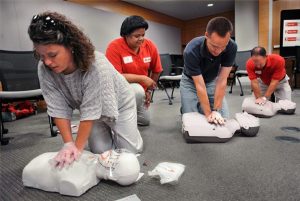Why Longevity Is About More Than Just Living Longer

More people today are living into their eighties and nineties than ever before, yet many spend their later years managing illness or fatigue. The truth is that a longer life doesn’t always mean a better life. While modern medicine has extended lifespan, it hasn’t guaranteed the same quality of health throughout those added years. Many adults find themselves dealing with low energy, joint pain, or chronic conditions that make daily life harder than it should be.
This shift has made more people question what longevity really means. True longevity is not measured in years alone. It’s about maintaining physical ability, mental focus, and emotional balance well into older age. That’s the goal — to live longer and stay well enough to enjoy it.
-
Building a Strong Foundation Through Lifestyle
Balanced nutrition, regular movement, quality sleep, and stress control remain the most powerful tools for maintaining vitality. They influence hormone balance, gut health, and immune strength — all factors that affect how you age.
Food choices matter just as much as exercise. Diets high in processed ingredients and sugar can speed up inflammation, while whole foods and lean proteins help your body repair. Consistent, moderate physical activity supports muscle retention and keeps your heart strong. Getting enough sleep helps your body recover and keeps mental focus sharp.
These habits might seem simple, but they’re the base for every other longevity strategy.
Once these core habits are in place, you can explore advanced wellness approaches that build on them. For example, some individuals choose to optimize health with peptide therapy alongside lifestyle changes to further support energy, metabolism, and recovery. When these methods complement each other, the result is a more complete, lasting approach to healthy aging.
2. Strengthening Mental Health and Cognitive Function
Long life holds little meaning without mental clarity. Cognitive health is an essential part of longevity, and it depends on both physical and emotional care. Chronic stress, lack of sleep, and isolation can all affect memory and focus.
Simple daily habits can protect brain function. Staying mentally active through reading, problem-solving, or learning new skills helps keep neural connections strong. Physical activity improves blood flow to the brain, which supports concentration and mood. Adequate sleep allows the brain to clear toxins and consolidate memory.
Emotional health matters just as much. Social interaction and mindfulness reduce anxiety and keep your mind engaged. When you care for both body and brain, you create a foundation for lasting cognitive resilience.
3. The Importance of Social Connection in Healthy Aging
Health and happiness are strongly influenced by the company we keep. People with regular social interaction often report better well-being and lower stress. Strong relationships can even reduce the risk of depression and certain chronic conditions.
Staying connected doesn’t always mean having a large social circle. It’s about maintaining meaningful relationships and engaging with others regularly. Joining local wellness groups, volunteering, or simply keeping in touch with friends can have lasting benefits.
Longevity isn’t just about how many years you live. It’s about how well you live those years. A long life filled with energy, clarity, and connection is far more rewarding than one spent managing decline.



